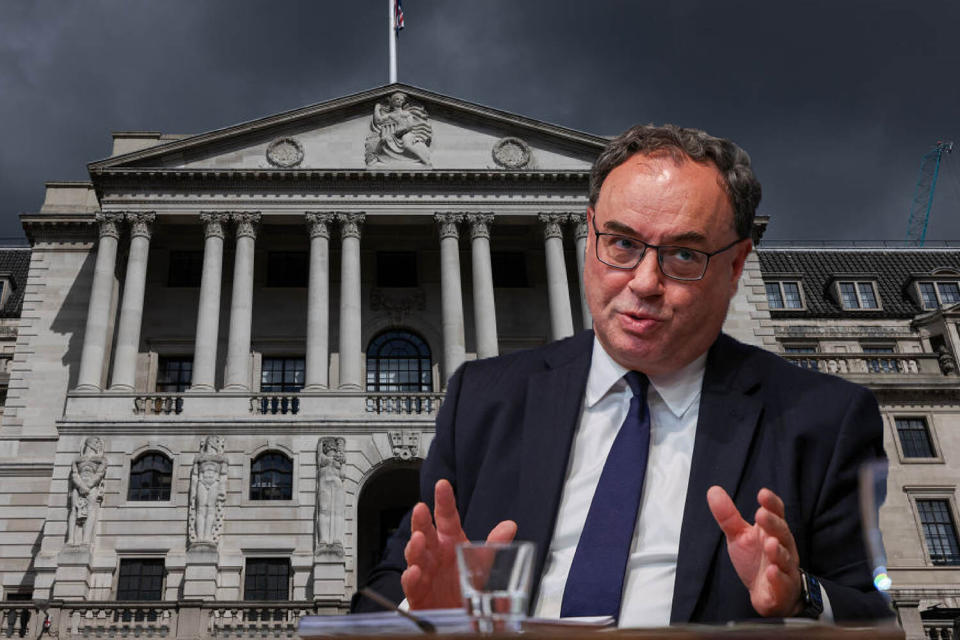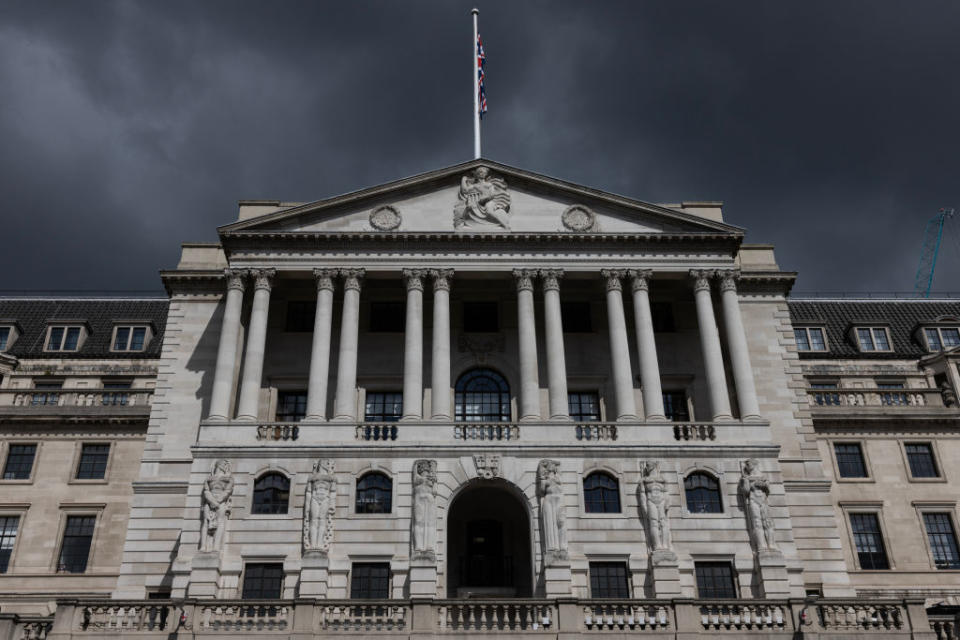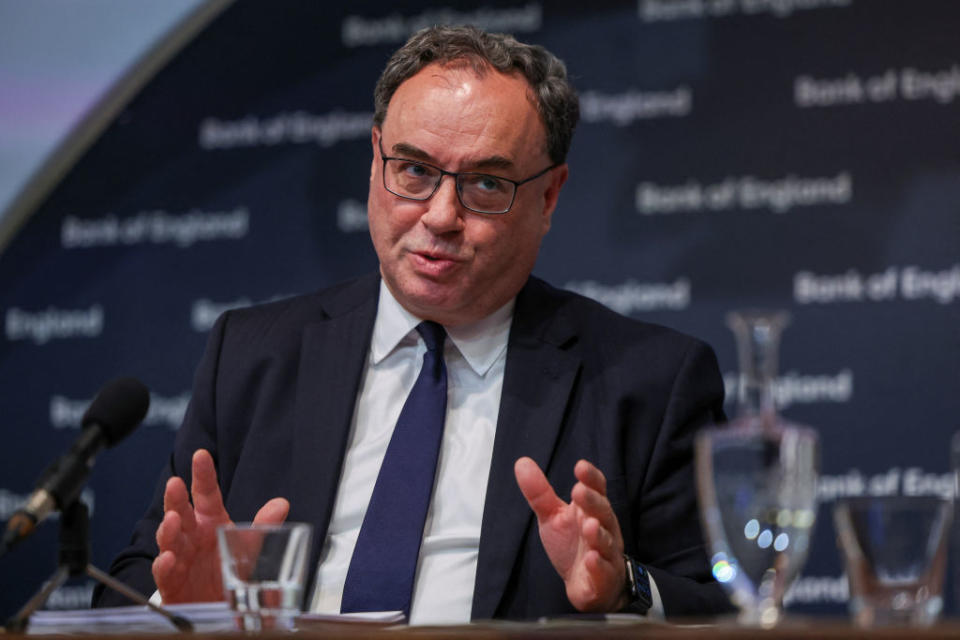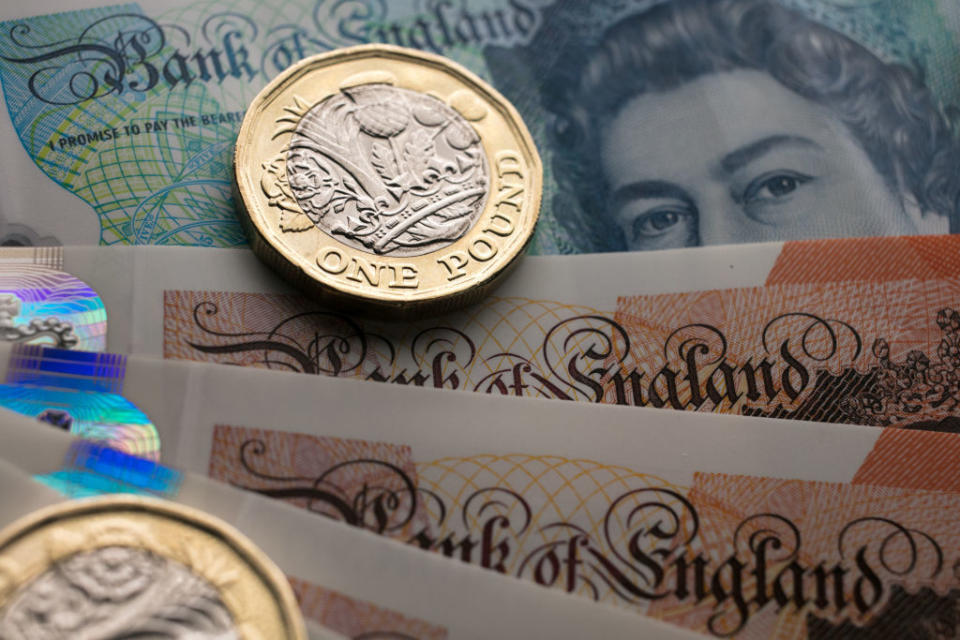

In around three weeks’ time, the Bank of England’s Monetary Policy Committee is set to meet to discuss UK interest rates.
Analysts expect the group of central bank employees and independent economists to raise the base rate – the mechanism that sets how expensive it is to borrow money across the economy – to 5.5%. This would mean it is at its highest level since the 2008 financial crisis.
Whilst homeowners on fixed rate mortgages will be insulated from the latest hike – for now, at least – those on tracker and standard variable rate products will see their monthly costs rise. Things could get even pricier for people in this situation if the next inflation announcement does not live up to expectations.

Although headline inflation, as measured through the Consumer Prices Index (CPI), slowed last month, there was bad news for services and core inflation. The rate of price hikes for services increased, while the core figure remained unchanged month-on-month. Any further bad news could lead to a repeat of the mortgage market jitters we have seen so far this summer.
The big question is whether we will see the Bank of England interest rate begin to fall anytime soon. But when might this happen?
Will interest rates come down?
The good news in the longer-term is that most economists expect interest rates will decline. This is because inflation, which the Bank of England tries to control by using its base rate, is expected by the central bank to halve by the end of 2023 before falling below its target rate of 2% between 2024 and 2026.
But the Bank has also sounded the same cautionary note on several occasions, warning that there is a possibility inflation in wages and daily costs “may take longer to unwind than they did to emerge” – in other words, inflation could be ‘sticky’. We have already seen evidence of stickiness in wage growth statistics (which imply that consumer purchasing power could be about to move in line with inflation) and core inflation.

In its global economic outlook published in April, the International Monetary Fund (IMF) said current high interest rate levels were likely to be “temporary” and will be reduced “when inflation is brought back under control”. For advanced economies, like the UK, the IMF said interest rates should fall “back towards pre-pandemic levels” as a result of several factors, including an ageing population (older people tend not to create as much demand in the economy).
The key word in that sentence is ‘towards’. By using it, the IMF is suggesting we might not see the record low interest rates of the 2010s, which consistently remained below 1%.
Another key reason for why interest rates are very likely to come down at some point is the economy. High interest rates can restrict economic activity as they make the cost of borrowing more expensive – loans being key for businesses if they want to expand. While falling into a recession is seen by some economists as a potential route out of the inflation crisis, politicians argue it would prove too damaging to living standards. But Jeremy Hunt appears to be resigned to the fact that a recession may be on the horizon – even if it means Rishi Sunak does not meet his pledge to grow the economy.
When will interest rates go down?
While we know the base rate will almost certainly come down at some point, the big question is when.

The Bank of England has left the door open to further interest rate hikes at each of its interest rate-setting meetings. So, the wording it uses at its next announcement in September will be pivotal, given many experts predict it will mark the peak of the current rates cycle. If it does continue to leave the door open, the effect may be a ploy to inject uncertainty into the business world, which in turn could reduce economic activity and therefore, inflation.
If the next meeting does turn out to be the peak, it is unlikely to mean the base rate will fall back anytime soon. The Bank’s own forecast from August does not foresee the rate dropping until mid-2024 – indeed, its market analysis suggests it could still raise it to 6%.
Even if it doesn’t go this far, the base rate is expected to remain above 4% until at least the end of 2026 – more than four-times above the typical rates from the 2010s. In other words, don’t expect your mortgage to go back to where it was before the Covid pandemic.
As for commentators’ predictions, analysts at independent consultancy Capital Economics have previously predicted a “plateau” for the Bank rate once it hits its peak. Investment platform Saxo has predicted the rate will not fall until May 2024 – albeit with the caveat that improving inflation data could change the picture. Samuel Tombs at Pantheon Macroeconomics said the Bank of England’s own forecasts suggest rates are not set to fall back sharply for some time, with its commentary “broadly endorsing markets’ current expectations for only a modest reduction in Bank rate next year”.
What will high interest rates mean for my money?
Experts believe that between now and whenever interest rates fall significantly, people across the UK will continue to feel a cost of living squeeze.
The Bank of England estimates monthly payments will rise £500 on average by 2026 for around one million households on a fixed-rate mortgage. For a further half a million homeowners, their monthly bills could soar by more than £750. This forecast came after one from progressive think tank the Resolution Foundation, which said it expects interest rates will lead to a £2,900 (£242 a month) hit for a typical mortgage payer by 2026.
The reason why both forecasts are looking as far as three years ahead is because fixed rates, which most households are on, will delay the pain for many homeowners. But it’s worth remembering that mortgage rates are not tethered to the headline base rate (unless you’re on a tracker, which follows it closely). So, mortgage rates could go up or down regardless of where the Bank rate sits. It very much depends on the market’s perception of how well the Bank of England’s anti-inflation strategy is going as to what will happen.
Of course, any mortgage rate rises could well prove to be too much for people whose budgets have already been stretched to the maximum by the cost of living crisis. If you find yourself in this position, mortgage lenders have been encouraged by the government to provide you with breathing space.
Those with savings should expect to be able to benefit from higher rates, although banks have faced criticism for being slow to pass these on. Although more beneficial rates are good news on the face of it, some savers may need to be savvy about how they put their cash away, as the higher rates could well push some people over the tax-free allowance for savings interest. If you’re at risk of being in this situation, ISAs are a potential option.
One potential silver-lining for everyone is that inflation has been coming down. At the same time, wages have been growing at a pace which looks set to surpass the headline rate of price rises in the very near-future. It could mean your purchasing power begins to recover – albeit at a sluggish pace – over the coming months.





